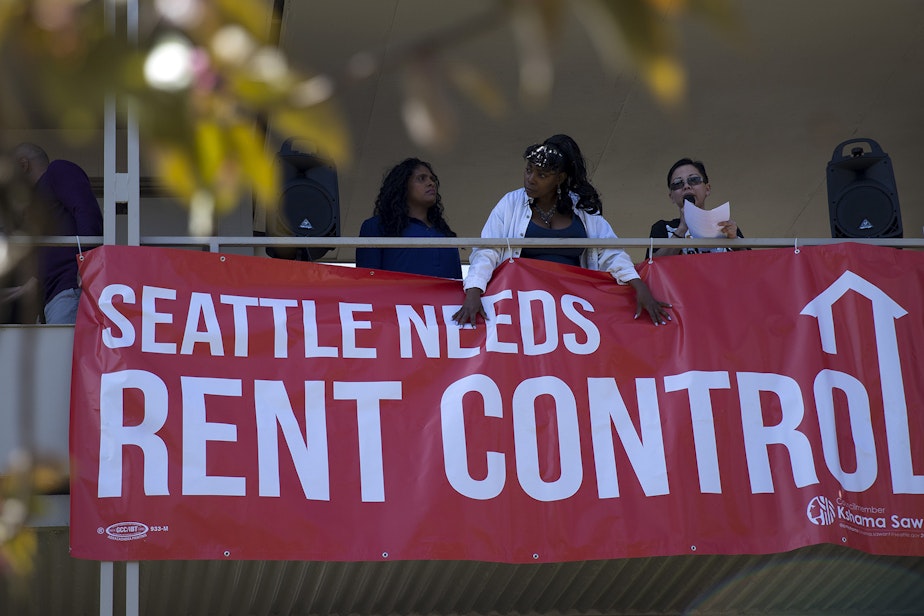Rent control in Seattle? Legacy goal for Kshama Sawant faces hurdles

If you're a renter in Seattle, you've likely heard this story before:
"When I lived on Capitol Hill in 1992, I paid $300 for my apartment, and I paid for it with a part-time job at Tower Records."
That type of nostalgia may set your teeth grinding.
Policymakers have identified the housing crisis, homelessness, and gentrification as a huge problem for fast-growing places like Seattle.
What's not always clear is what they plan to do about the economic pressures squeezing working-class people out of the city.
Seattle City Councilmember Kshama Sawant said she has the solution: rent control.
"There's no question at this moment do ordinary people and specifically renters support rent control? Of course they do," Sawant said at a committee meeting on Wednesday, July 12. "They don't need to be told their life sucks when they are at the mercy of corporate landlords, and that they need some policy to protect them."
The term "rent control" is pretty broad, and can be used to describe many different elements to try to keep the cost of living from rising too much, too quickly.
Sponsored
Councilmember Sawant's proposal is one that she hopes will prevent loopholes and exemptions.
"Basically, it would tie rent to inflation," explained Melissa Santos, a reporter at Axios. "You cannot increase rent over a 12-month period more than the rate of inflation for that year."
During last week's committee meeting, Councilmember Sawant brought up how much rent has increased in the past decade.
“Between 2010 and 2020, rents in Seattle have almost doubled," she explained. "This is a brutal reality for the vast majority of our renters. And keep in mind, renters now make up well above the majority of the city.”
Landlords, property management companies, and developers are pushing back. In a written statement from Seattle King County Realtors, 2023 President Sharon O’Mahony said the following:
Sponsored
"Rent control is a disincentive to reinvest in and improve rental properties. When properties aren’t improved, conditions worsen for tenants. Existing landlords in price-controlled markets may get out of the business by converting their rentals to condos, bulldozing their buildings and repurposing that property. Such controls affect smaller landlords to a much greater degree."
Also looming over the entire conversation is current state law.
Sawant's proposal would not be able to take effect until the state lifts its ban on local rent-control ordinances. Washington state has had a rent-control ban since 1981, and none of the attempts to repeal or change it have gained traction in the past 30 years.
"There's a lot of lawmakers in Olympia, who feel like a statewide option is preferable," explained Santos. "If we're going to do rent control, we should do it across the whole state; in every city, so that we don't have individual cities either put at a disadvantage or having some sort of patchwork of laws."
The proposal goes in front of the committee for a vote on Friday, July 21, and, if it makes it out of committee, it will likely go up for a vote in the full City Council in August.
Sponsored
You can listen to the entire conversation in the audio above. We'd love to get your feedback — you can call in your thoughts to 206-221-3123 or send a voice message to "Soundside" at kuow dot org.




